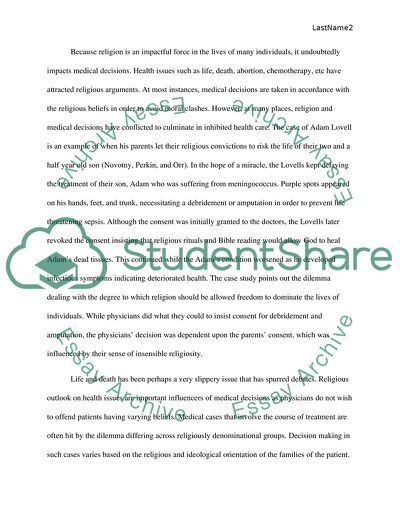Cite this document
(“Religion And Its Effect on Medical Decisions Essay”, n.d.)
Religion And Its Effect on Medical Decisions Essay. Retrieved from https://studentshare.org/english/1649962-religion-and-its-effect-on-medical-decisions
Religion And Its Effect on Medical Decisions Essay. Retrieved from https://studentshare.org/english/1649962-religion-and-its-effect-on-medical-decisions
(Religion And Its Effect on Medical Decisions Essay)
Religion And Its Effect on Medical Decisions Essay. https://studentshare.org/english/1649962-religion-and-its-effect-on-medical-decisions.
Religion And Its Effect on Medical Decisions Essay. https://studentshare.org/english/1649962-religion-and-its-effect-on-medical-decisions.
“Religion And Its Effect on Medical Decisions Essay”, n.d. https://studentshare.org/english/1649962-religion-and-its-effect-on-medical-decisions.


